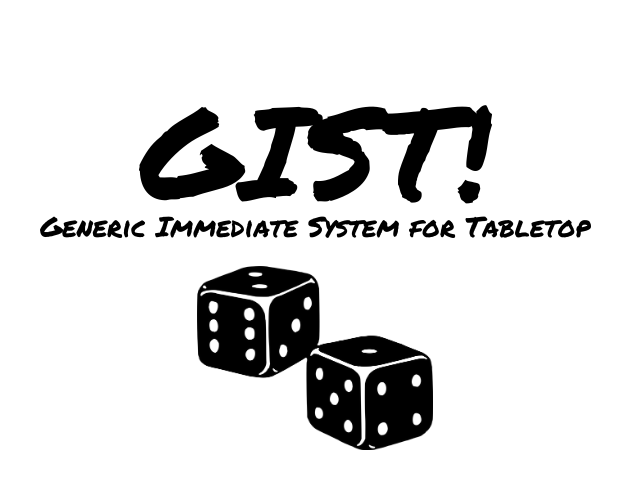Most of actions can be adjudicate from the context and how the player describes the character performing them. When the outcome is uncertain, however, the Referee may request a check:
- Opposition Check: performed when two characters oppose one another. Both of them roll 2d6 and add modifiers, re-rolling ties. Who rolls higher wins.
- Difficulty Check: performed, when the Referee determines a fixed difficulty, as follows:
- The Referee states the difficulty of the action, adding a situational modifier between - 2 and +2 to scale if needed.
- The player rolls 2d6 and adds the roll modifiers granted by attribute, skills or gear.
- If the modified roll is equal or greater than 8, the action succeeds.
Critical Rolls
A natural roll of 2 or 12 (without applying any modifier) is always a Critical Failure or Success, regardless of modifiers.
Scaling Difficulty
If an action seems trivial within the context of play, the Referee will skip the check and allow the player to proceed.
If an action is impossible, the Referee has two options:
- break the action down into a series of simpler actions
- declare the action impossible and move on with the story.
If an action is possible but requires a check, the Referee will determine if any modifiers should be applied based on the following difficulty scale, with most actions being of Average difficulty.
| Modifier | Difficulty |
|---|---|
| +2 | Easy |
| 0 | Average |
| -2 | Hard |
Gear
Equipment can provide an advantage in the game that results in a bonus to the Check. For each useful item in an action, the bonus is +1. However, gear can be damaged or lost during gameplay, and the Referee has the final say in this matter.
Armor
The thickness of armor determines the extent of damage reduction it provides, which can range from 1 (for light armor) to 3 (for heavy armor).
Here are some examples:
| Armor Type & Value | Fantasy | Science Fiction | Modern |
|---|---|---|---|
| Light (1) | Leather | Energy Shield | Tactical Helmet |
| Medium (2) | Chainmail | Hazmat Suit | Bulletproof Vest |
| Heavy (3) | Plate | Power Armor | Riot Gear |
Example
Let's say our character is named Sasha, a skilled thief who is currently infiltrating a heavily guarded mansion to steal a valuable painting.
As Sasha approaches the mansion, the Referee informs the player that there are two guards patrolling the perimeter, making it a difficult task to get inside undetected. Sasha decides to attempt a sneaky infiltration and the Referee sets the difficulty check to -2 due to the high security.
Sasha's player rolls 2d6 and adds their modifier for Stealth, which is +3, but since it's a difficult task, the Referee applies a +2 modifier, making it a total of +1. Sasha rolls a 10, adding up to 11 with the modifiers, succeeding in getting past the guards undetected.
Now Sasha is inside the mansion, searching for the painting. As they enter the gallery, the Referee tells the player that the painting is kept behind a reinforced glass display case, making it a hard task to break it and steal the painting. The Referee sets the difficulty check to +2, due to Sasha's experience as a thief.
Sasha's player rolls 2d6 and adds their modifier for Thievery, which is +4, and since it's a hard task, the Referee applies a -2 modifier, making it a total of +2. Sasha rolls an 8, adding up to 10 with the modifiers, successfully breaking the display case and stealing the painting.
However, as Sasha is making their way out, they run into a guard who has noticed the broken display case and is on high alert. The Referee calls for an opposition check between Sasha and the guard.
Both Sasha and the guard roll 2d6, with Sasha adding their modifier for Agility (+2) and the guard adding their modifier for Perception (+3). The Referee applies no modifiers to the roll. Sasha rolls a 9 and the guard rolls a 7, making Sasha the winner of the check, as they managed to slip past the guard and escape with the painting.


